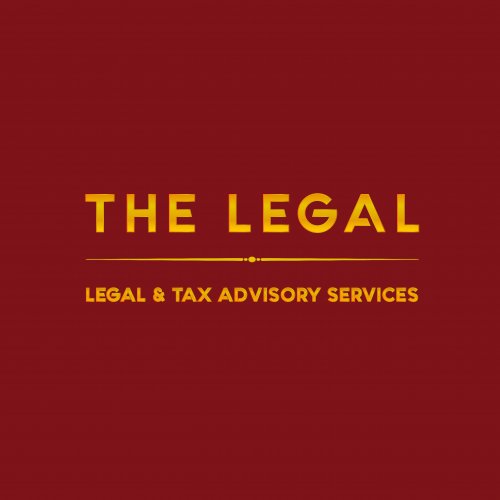Best Data Center & Digital Infrastructure Lawyers in Bangkok
Share your needs with us, get contacted by law firms.
Free. Takes 2 min.
List of the best lawyers in Bangkok, Thailand
Legal guides written by Smart Legal Solutions:
- Main Legal Measures to Protect Foreign Investment in Thailand
- The importance of the geographical indications for the Thai economy
Legal guides written by Mahanakorn Partners Group Co., Ltd:
- Thailand Strengthens Anti-Money Laundering Laws with New Amendments
- Recent Updates to Thailand’s Long-Term Resident (LTR) Visa and SMART Visa Programs
- Managing Risks in Public-Private Partnership Projects
About Data Center & Digital Infrastructure Law in Bangkok, Thailand
Bangkok is a leading digital hub in Southeast Asia, experiencing rapid growth in data center and digital infrastructure investments. As businesses and government agencies transition to more digital operations, the legal framework around data centers becomes vital. Data center and digital infrastructure law in Bangkok addresses matters such as data protection, operational compliance, real estate, cybersecurity, and international data transfer. The sector is shaped by both domestic laws and international standards, given Bangkok's role as a regional technology center.
Why You May Need a Lawyer
Legal assistance is essential in the data center and digital infrastructure sector due to its complexity. Here are common situations where you may require a lawyer:
- Negotiating contracts for data center leasing, construction, or colocation agreements
- Ensuring compliance with Thailand’s Personal Data Protection Act (PDPA) and other regulatory requirements
- Addressing cross-border data transfer and international compliance issues
- Resolving property and zoning matters for data center locations
- Managing cybersecurity incidents and handling breach notifications
- Advising on mergers, acquisitions, or joint ventures in the digital infrastructure sector
- Handling disputes between service providers, customers, or regulatory bodies
- Obtaining necessary operational licenses and permits
- Navigating tax incentives or government support programs
- Dealing with intellectual property related to proprietary systems and software
Local Laws Overview
Key local laws shape the operation and development of data centers and digital infrastructure in Bangkok:
- Personal Data Protection Act (PDPA): This act governs how personal data is collected, used, and transferred. Organizations operating data centers in Bangkok must ensure robust compliance mechanisms.
- Cybersecurity Act: Provides the legal framework for managing and responding to cybersecurity threats, especially for critical infrastructure providers.
- Telecommunications and IT Regulations: Overseen by the National Broadcasting and Telecommunications Commission (NBTC), these regulations govern telecommunications infrastructure, spectrum allocation, and operational licensing for data centers.
- Foreign Business Act: Imposes restrictions and requirements on foreign ownership and investment in certain sectors, including digital infrastructure.
- Real Estate and Construction Laws: Data center locations must comply with zoning, environmental, and building regulations.
- Intellectual Property Laws: Protect software, hardware designs, and proprietary technologies deployed in data centers.
- Tax Regulations: Incentives and tax treatments may apply to investments in digital infrastructure under the Board of Investment (BOI) promotions.
Frequently Asked Questions
What legal permits are required to build or operate a data center in Bangkok?
Permits depend on the scale and location of the data center. These include construction permits, environmental impact assessments, and operational licenses from authorities like the NBTC.
Is compliance with Thailand’s PDPA mandatory for all data centers?
Yes. Any entity collecting, processing, or storing personal data in Thailand must comply with the PDPA, with severe penalties for non-compliance.
Can data stored in a Bangkok data center be transferred internationally?
Yes, but cross-border transfers must follow PDPA and relevant international agreements. Data may only be transferred to countries with adequate data protection or with explicit consent.
Are there foreign ownership restrictions for data center businesses?
Foreign ownership is regulated under the Foreign Business Act. Some activities connected to data centers may require Thai majority ownership or specific permissions.
What are common contractual disputes in data center agreements?
Disputes often arise over service level agreements (SLAs), data security obligations, breach of contract, and operational downtime.
What should be included in a data center services agreement?
Key elements are SLAs, data security provisions, liability clauses, data ownership, disaster recovery, and termination conditions.
How are cybersecurity incidents handled by law?
The Cybersecurity Act mandates incident reporting, risk mitigation, and cooperation with government authorities for critical incidents.
What incentives exist for investing in digital infrastructure?
The BOI offers incentives such as tax holidays, import duty exemptions, and expedited permit processes for qualifying digital infrastructure projects.
How can companies ensure environmental compliance for data centers?
Developers must secure environmental impact approvals and comply with waste management, energy use, and emissions standards.
Are cloud service providers subject to the same regulations as physical data centers?
Generally, cloud providers are subject to the same data protection, cybersecurity, and consumer protection laws as traditional data centers.
Additional Resources
If you need more information or support, the following organizations and bodies can be helpful:
- Ministry of Digital Economy and Society: Governs digital policy and infrastructure regulation
- National Broadcasting and Telecommunications Commission (NBTC): Issues licenses and enforces telecom regulations
- Office of the Personal Data Protection Committee (PDPC): Oversees PDPA implementation
- Board of Investment (BOI): Provides incentives and support for infrastructure investments
- Thailand Data Center Council: Industry organization for knowledge sharing and standards
- Thailand Cybersecurity Agency: Offers cybersecurity guidance and incident support
Next Steps
If you require legal assistance with data center or digital infrastructure matters in Bangkok, consider the following steps:
- Gather background materials such as contracts, permits, or business plans related to your matter
- Identify your key objectives, whether compliance, dispute resolution, or business expansion
- Contact a qualified lawyer specializing in data center and technology law, ideally with experience in the Bangkok market
- Prepare a list of questions or concerns to discuss during your consultation
- Stay informed of any legal updates affecting the digital infrastructure sector
- Engage regularly with industry bodies or legal advisory services to keep your organization compliant and up to date
Consulting with experienced legal professionals ensures you navigate the complexities of data center and digital infrastructure law effectively in Bangkok.
Lawzana helps you find the best lawyers and law firms in Bangkok through a curated and pre-screened list of qualified legal professionals. Our platform offers rankings and detailed profiles of attorneys and law firms, allowing you to compare based on practice areas, including Data Center & Digital Infrastructure, experience, and client feedback.
Each profile includes a description of the firm's areas of practice, client reviews, team members and partners, year of establishment, spoken languages, office locations, contact information, social media presence, and any published articles or resources. Most firms on our platform speak English and are experienced in both local and international legal matters.
Get a quote from top-rated law firms in Bangkok, Thailand — quickly, securely, and without unnecessary hassle.
Disclaimer:
The information provided on this page is for general informational purposes only and does not constitute legal advice. While we strive to ensure the accuracy and relevance of the content, legal information may change over time, and interpretations of the law can vary. You should always consult with a qualified legal professional for advice specific to your situation.
We disclaim all liability for actions taken or not taken based on the content of this page. If you believe any information is incorrect or outdated, please contact us, and we will review and update it where appropriate.

















